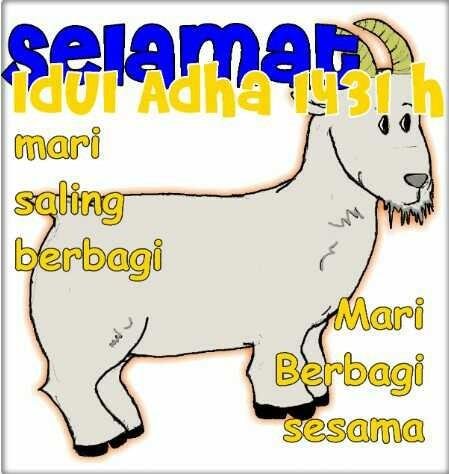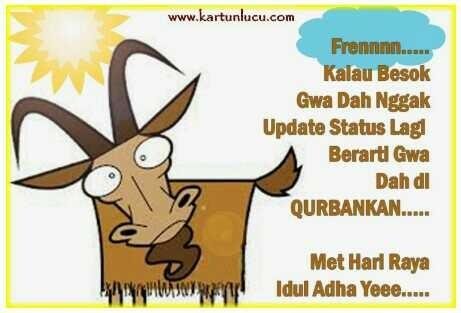
Every 10 Dzul Hijjah, all Muslims who do not perform Hajj celebrate Eid al-Adha. On that day, Muslims were greatly encouraged to sacrifice where they slaughtered sacrificial animals for distribution to all Muslims in an area. Then what is Qurban really? Below will be explained in full.
Qurban comes from Arabic, "Qurban" which means close (قربان). Sacrifice in Islam is also called al-udhhiyyahdan adh-dhahiyyah which means slaughtered animals, such as camels, cattle (buffalo), and goats slaughtered on Eid al-Adha and tasyriq days as a form of taqarrub or closer to Allah.
Disyari'atkan's argument for sacrifice
Allah SWT has sacrificed sacrifice by His word, "Verily We have given you many blessings. Then establish prayer because of your Lord, and sacrifice. "Those who hate you are the ones who are cut off." (Al-Kautsar: 1 - 3).
"And we have made for you the camels as God's blessing. You get a lot of good from it, so call the name of Allah when you slaughter it "(Al-Hajj: 36).
The Advantages of Sacrifice Worship
From Ayesha, the Prophet said, "There is no practice carried out by humans on the Feast of Sacrifice which is more loved by Allah SWT than slaughtering sacrificial animals. Surely the animal of the Sacrifice will come on the Day of Resurrection with its horns, feathers, and nails. And indeed before the blood of the Sacrifice touched the ground, it was received in the sight of Allah, then all of you are fortunate with the sacrifice "(Tirmidhi).
Law of Sacrifice
Worship is the sacrifice of the law sunnah muakkadah (sunnah which is highly recommended). For someone who is able to do it then he leaves it, then he is punished makruh. This is based on the hadith narrated by Bukhari and Muslim that the Prophet had sacrificed with two kibasy goats who were both white and horny. He himself slaughtered the sacrifice, and read out the name of Allah and made a blessing (when cutting it).
From Umm Salamah, the Prophet said, "And if you have seen the new moon (date) of the month of Dhul Hijjah, and one of you wants to sacrifice, then let him leave his hair and nails." Muslim
The meaning of the Prophet's words, "wanting to sacrifice" is the proposition that this sacrifice is sunnah, not obligatory.
It was narrated from Abu Bakr and Umar that both of them had never made a sacrifice for their families, because both were afraid if the matter of sacrifice was considered obligatory.
Sacrifice Wisdom
Sacrifice worship is prescribed by Allah to commemorate the History of Eid al-Adha itself experienced by Prophet Ibrahim and as an effort to make it easy on Id day, as said by the Messenger of Allah, "These days are none other than the days of eating and drinking and dhikr to Allah Almighty.

Animals Allowed for Sacrifice
Animals that can be sacrificed are camels, cows (buffalo) and goats. In addition to the three types, this is not allowed. Allah Almighty said, "that they may mention the name of Allah to the cattle that Allah has bestowed upon them" (Al-Hajj: 34).
And considered adequate to sacrifice with half-year-old sheep, one-year-old Javanese goat, two-year-old cow, and five-year-old camel, whether male or female. This is in accordance with the following traditions:
From Abu Hurairah, he said, I had heard the Messenger of Allah say, "The best sacrificial animal is a goat which is jadza '(powel / one year old)." (HR Ahmad and Tirmidhi).
From Uqbah bin Amir ra, I said, O Messenger of Allah, I have jadza ', the Messenger of Allah replied, "Sacrifice with him" (HR Bukhari and Muslim).
From Jabir ra, the Messenger of Allah said, "Do not sacrifice animals except those aged one year and over, if that makes it difficult for you, then slaughter Jadza '."
Sacrifice with Neutered Goats
It's okay to sacrifice with castrated goats. Narrated by Ahmad from Abu Rafi ', that the Messenger of Allah sacrificed with two kibasy goats which were both white and black and neutered. Because the meat is better and more delicious